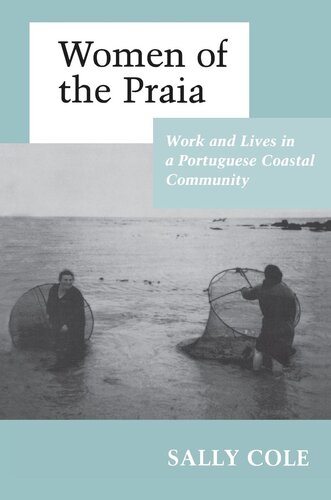

Most ebook files are in PDF format, so you can easily read them using various software such as Foxit Reader or directly on the Google Chrome browser.
Some ebook files are released by publishers in other formats such as .awz, .mobi, .epub, .fb2, etc. You may need to install specific software to read these formats on mobile/PC, such as Calibre.
Please read the tutorial at this link: https://ebookbell.com/faq
We offer FREE conversion to the popular formats you request; however, this may take some time. Therefore, right after payment, please email us, and we will try to provide the service as quickly as possible.
For some exceptional file formats or broken links (if any), please refrain from opening any disputes. Instead, email us first, and we will try to assist within a maximum of 6 hours.
EbookBell Team

4.1
70 reviewsIn this richly detailed, sensitive ethnographic work, Sally Cole takes as her starting point the firsthand accounts of five differently situated Portuguese women, who describe their lives in a rural fishing community on the north coast of Portugal. Skillfully combining these life stories with cultural and economic analysis, Cole radically departs from the picture of women as sexual beings that prevails in the anthropological literature on Europe and the Mediterranean. Her very different strategy--a focus on women as workers--reflects the Portuguese women's own definition of themselves and allows them the strong, resonant voice that is the goal of both the new ethnography and feminist scholarship. From this new perspective, Cole proposes an important critique of the dominant paradigm of southern European gender relations as being embedded in the code of honor and shame. Covering the Salazar years, as well as the period since the 1974 Revolution, Cole shows that fisherwomen of the past enjoyed greater autonomy in work and social relations than do their daughters and granddaughters, who live in a context of increasing commoditization and industrialization. Central to this account is an examination of the changing structure and role of the household as economic production moved to the factory.